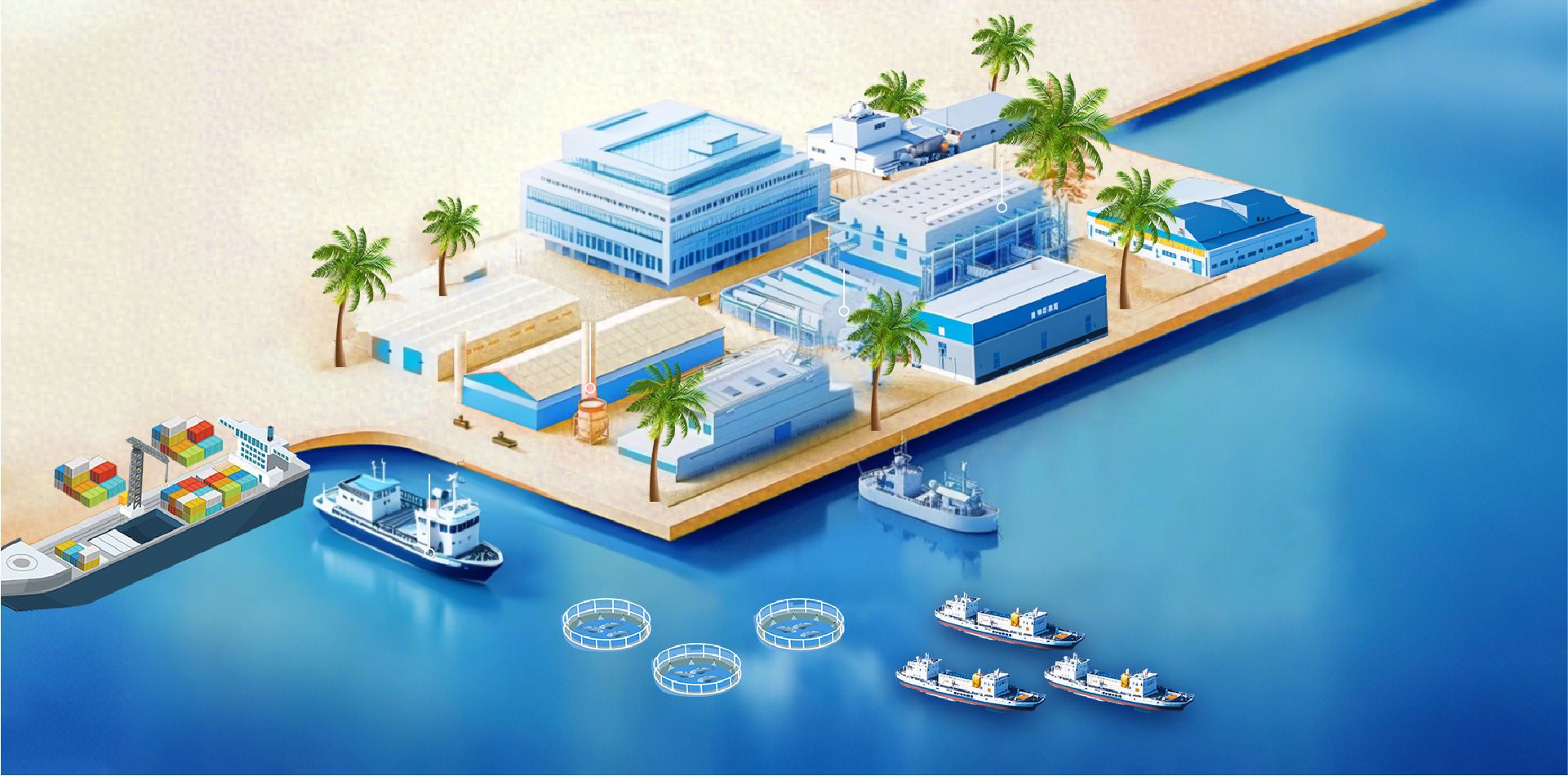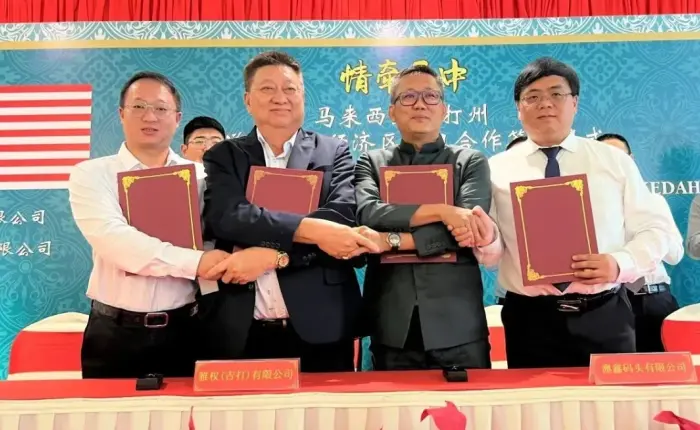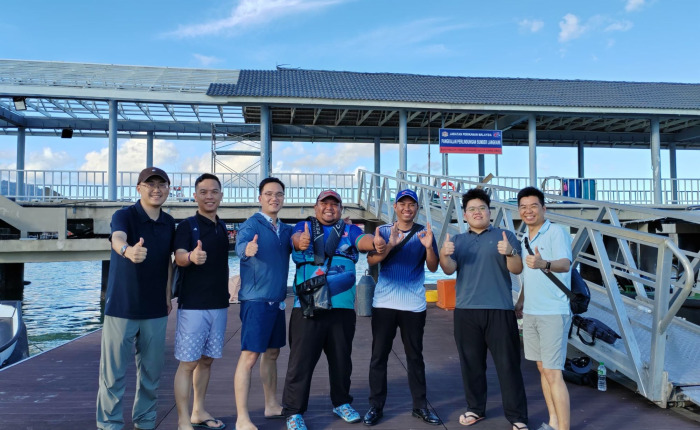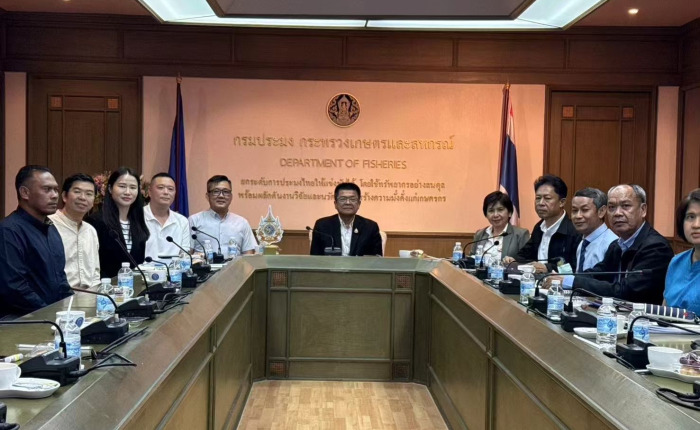

Malaysia's Fishing Industry:
Evolving from Traditional Practices
to a Modern Business Model
Our integrated fisheries business model streamlines the entire value chain from breeding and farming to processing and sales ensuring higher efficiency, lower costs, and improved profitability for stakeholders. By centralizing operations, adopting smart aquaculture technologies, and optimizing logistics, we create scalable and sustainable solutions that benefit both local fisheries and the broader seafood industry. This approach enhances resource utilization, minimizes waste, and maximizes economic returns, paving the way for a modernized and resilient fisheries sector.
On June 1, 2024, Ausin Group, FuJian HaiXia Research Institute of Architechtural Design and Planning, and Huamin Digital Intelligence signed an MoU in Ausin Group to develop Malaysia’s first "Marine and Fisheries Economic Zone," a MYR 1.2 billion project integrating port development, fishery transportation, processing, and cold chain logistics across Kedah Port and Langkawi.

Ausin Group has established a strong relationship with the Department of Fisheries of Langkawi as part of its upcoming project—Langkawi Integrated Fisheries Farming (LIFA)@MADANI. This collaboration signifies the official endorsement of the project, reinforcing its viability and long-term sustainability in Langkawi. With the support of the Department of Fisheries, Ausin Group ensures that LIFA @ MADANI aligns with national aquaculture goals, environmental sustainability, and economic development initiatives. This endorsement also enhances the project's credibility, facilitating regulatory approvals, investment opportunities, and operational success in Langkawi’s growing fisheries sector.

In October 2024, Ausin Group’s subsidiary, Austin Starhill Co. Ltd., attended an international meeting with the Department of Fisheries of Thailand to discuss a collaborative project on seahorse farming in La-Ngu, Satun. This project aims to establish a sustainable and commercial-scale seahorse aquaculture operation, leveraging advanced breeding techniques and expertise from a specialized team of experts from China. The seahorses produced primarily for use in traditional medicine, where they are in high demand for their medicinal properties. The initiative has received official support from the Department of Fisheries of Thailand, highlighting its significance in promoting sustainable aquaculture, economic growth, and international trade partnerships. By integrating scientific research, advanced breeding technology, and strong market demand, this project is set to create a stable and profitable supply chain while ensuring compliance with conservation and regulatory standards.

